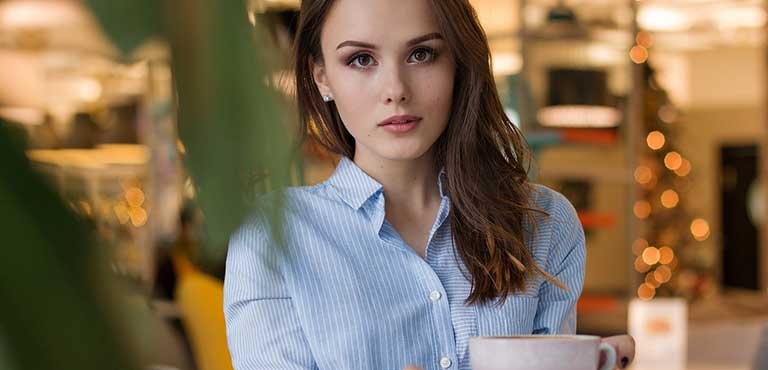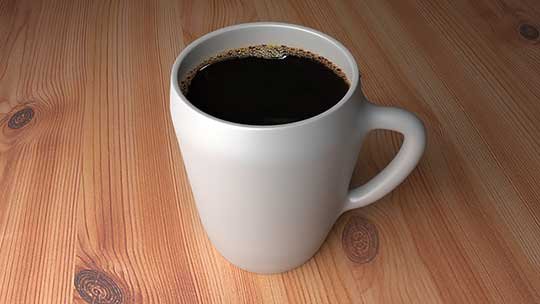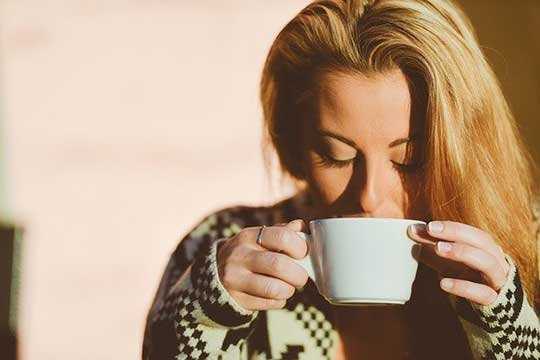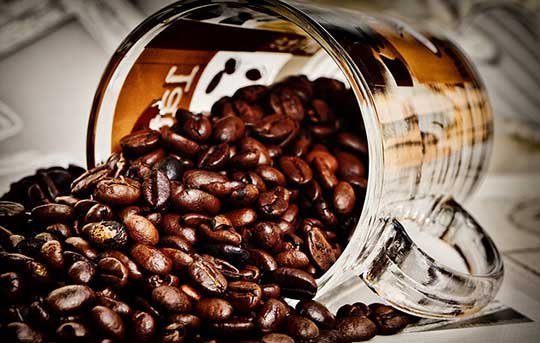Why Does Caffeine Make Me Tired? 5 Causes and Solutions

Caffeine is the most popular stimulant in the world, but it can also be one of the reasons why you feel so exhausted. It is a stimulant that provides a temporary energy boost. Caffeine stimulates the central nervous system and blocks the actions of adenosine, which usually causes drowsiness. But this stimulation can have side effects such as trouble concentrating or sleeping after caffeine consumption.
In addition, people metabolize caffeine at different rates, so some may feel an impact from coffee sooner than others. So, why does caffeine make me tired? There are many factors to consider when determining how caffeine will affect you, but it is always possible to make you feel tired! In this article, we shall look at all these factors and provide solutions as to how you can cope with the effects of too much caffeine intake. Read on!
The Best Coffee Machines that You Can Buy Online.
Extensively Reviewed by a Coffee-Enthusiastic.

Why Does Caffeine Make Me Tired?

So, why does caffeine make me tired? Caffeine is a stimulant and makes you feel more awake with the effects of adenosine receptors in your brain. The most common reason for feeling tired after caffeine is because it wears off and people tend to feel sleepy with regular coffee or energy drinks too.
This means there is a rise and fall of caffeine levels in the bloodstream, which can feel like an energy high and then a tiredness after. The body's adenosine receptors help control sleepiness and alertness. Adenosine works against the nervous system by slowing it down and making you feel more tired.
Caffeine from foods or drinks blocks the adenosine receptors so they do not have an influence on them for a while. This means caffeine temporarily makes you feel more awake and less tired by doing this, but then it also wears off which is why many people get that tired feeling later. This can sometimes be described as the effects of the 'come down' from caffeine.
The body's adenosine receptors are not the only part of the nervous system that makes you feel tired. There are also other parts which can have an effect, including serotonin and dopamine. It is thought that serotonin levels affect how sleepy you feel while dopamine makes sure your attention stays focused on things. Serotonin gives a feeling of being content or happy too.
The way caffeine reacts with your body seems to depend on how it is taken, what else is in it and whether people are used to it or not. For me too much caffeine makes me sleepy and that is why back then I would ask, why does coffee make me tired? Energy drinks usually contain more caffeine than coffee, for example, so they may wear off quicker but stay in your bloodstream for longer too. For some people this might mean sleeping problems because of energy drinks even if others can still get off to sleep easily.
People sometimes think that taking caffeine regularly can help them to get used to it but this is not the case because their body's reaction stays the same. Some people regularly drink tea or coffee, for example, and then some of these drinks may have less effect than if someone had them only occasionally.
There are no real 'withdrawal symptoms' when stopping regular caffeine intake although some people might feel tired than normal for a few days after they stop drinking more healthy alternatives like green tea or black tea. When trying to cut down on caffeine there are also steps like one drink per day instead of two which builds up over time until someone does not need it anymore.
Why Does Coffee Make Me Sleepy?

Did you know that coffee can make you feel sleepy? We have all had an experience with this phenomenon - feeling so energized after drinking a cup of coffee, only to find ourselves yawning just minutes later.
Why do you feel sleepy after taking caffeine? It turns out that our bodies are wired to respond to caffeine by secreting hormones like dopamine and adrenaline, which help regulate wakefulness and sleepiness.
After eating or drinking something containing caffeine, these chemicals quickly build up in our system and cause us to become more alert for a short period. This might be why we often associate coffee with keeping us awake! However, as the caffeine is processed by the liver it is broken down into compounds that can trigger sleepiness. This might be why we feel drowsy after drinking coffee!
So why does coffee make me sleepy? Here is why:
- Caffeine crush: Caffeine does work by blocking adenosine receptors in the brain, slowing activity in many parts of our body and making us feel awake. Sleep comes back to you once the caffeine wears out of your body since it is part of your natural cycle.
- Caffeine Tolerance: After a few days of drinking, coffee makes me sleepy, you will see that the effect of caffeine is starting to wear off, and you will need more and more coffee until finally, your body starts to produce its tolerance for caffeine.
- Too many sweeteners: Adding sugar or other sweeteners to your coffee can trigger insulin, making you feel hungry. Too much sugar in coffee does make me sleepy as it triggers an energy drop and makes us tired.
- Lactose Intolerant: Lactose intolerant people have a hard time digesting lactose found in coffee’s milk, which can cause bloating and stomach aches leading to fatigue, dehydration, and sleepiness.
- Hormones: Women going through hormonal changes during menstruation tend to become more sensitive to the effects of caffeine.
Coffee Makes Me Tired: What Should I Do to Minimize its Effects?
Some studies have shown that people who drink caffeinated beverages routinely throughout the day have a lower risk of diabetes, Parkinson's disease and Alzheimer's disease. Coffee also reduces the chance of heart rate disease, cirrhosis of the liver, depression among teens, suicide among adults, and ailments associated with the skin, eyes, stomach, liver, and blood.
Some research also suggests that caffeine might help treat headaches, migraines, fibromyalgia symptoms, asthma symptoms, coughs, colds among children, menstrual cramps, and gallstones among overweight or have a high-fat diet. However, too much coffee can make you tired as coffee makes me tired, and for you to minimize the adverse side effects, you should consider the following:
- Control your caffeine intake: Are you one of those who say caffeine makes me tired? The most obvious solution is to limit your daily caffeine intake. While studies have shown that cutting back on caffeine can improve sleep quality in a matter of days, going cold turkey isn't recommended unless you want to end up with a nasty headache! Instead, consider limiting yourself to one or two cups of coffee throughout the day instead of three or four. In addition, avoid consuming other sources of caffeine, such as energy drinks and caffeinated soda. If possible, don't drink it in the afternoon because a significant drawback to a later bedtime is difficulty waking in the morning due to lingering effects from caffeine.
- Avoid sugary coffee: Sugary coffee drinks can affect your sleep in several ways. The sugar alone will cause insulin levels to rise, which may cause you to awaken during the night due to its effects on metabolism. Furthermore, many coffee drinks contain high amounts of carbohydrates (more than 50 grams) and certain types of fats. Those are hard for your body to break down. They provide excess calories and slow down digestion, leaving behind toxins that can disturb sleep.
- Take Decaf coffee: Luckily, decaf is an option. While research has yet to find whether or not it contains enough caffeine to disrupt sleep (for most people, it does), some studies suggest that low doses of caffeine may improve your ability to fall asleep fast while protecting against neurodegenerative diseases. However, it's much better to switch to decaf coffee than avoid it altogether! This has made me enjoy my decaf more in the afternoon.
- Avoid drinking coffee in the evening: Avoid drinking coffee in the late afternoon or at night because even decaffeinated coffee can interfere with sleep due to its high caffeine content and ability to affect circadian rhythms. Regularly consuming a large amount of caffeine may also reduce one's sensitivity to its effects over time, which results in a need for more and more caffeine to achieve the desired effect. Some people often use caffeinated beverages as a mild pick me up when they are fatigued from having already consumed too much caffeine earlier in the day.
- Drink coffee before exercising: Caffeine has been used for years as a powerful stimulant to reduce feelings of tiredness and restore energy. Drinking coffee before exercising doesn't give me the added boost in energy or improvements in performance that one might expect. However, it does have another effect that is perhaps more important in our modern society- caffeine makes your cognitive function improve. Improved cognition means faster reaction times when driving, better grades in school, faster responses to emails at work, etc.
Caffeine Opposite Effect: Why Does Caffeine Have an Opposite Effect For Some People?

This is a question that we have been asked time and again by different people. Understanding the (caffeine opposite effect) on coffee drinkers' bodies is vital. It turns out, it can be quite revealing when you explore the issue in depth.
Everyone experiences caffeine in their own way based upon their unique biology, so it's no wonder some experience the opposite effect given the best circumstances for it to occur. Let's find out why this happens, and before we do that, let's consider a few essential points about caffeine first:
- Caffeine is a water-soluble alkaloid (a nitrogen-containing molecule) and acts as an antagonist blocking adenosine receptors in the brain.
- Caffeine has no flavour of its own, but it can enhance other flavors, especially bitter ones, which is why coffee, tea, chocolate and many sodas are so popular.
- Caffeine is rapidly absorbed through the stomach lining into the bloodstream within 45 minutes after consumption. The effects of caffeine are typically felt within 15 minutes of consumption.
- Peak blood levels of caffeine occur between 30 to 120 minutes after taking it depending on age, how much food is present because this affects transit time through the stomach lining, dosage etc.
- It takes approximately 5 hours for 80% of caffeine to be eliminated from the body.
Caffeine is metabolized by the liver and broken down into three methylxanthines. Paraxanthine (84%), theobromine (12%) and theophylline (4%). This is why we see a spike of these metabolites in urine after taking caffeine. - It can take up to 24 hours for some individuals to eliminate just 50% of the caffeine taken. So if you consume 200 milligrams, then it's going to be lingering around for quite some time! You can drink less coffee because a lot of it will mean longer elimination time from the body.
Okay, now that we have that background out of the way, let's look at how genetics play a role in this issue:
- A gene called PDSS2 is linked to caffeine metabolism. People who have a specific allele for this gene are more likely to experience the opposite effects that caffeine do when taking it compared to those who do not have this particular allele.
- The CYP1A2 enzyme is responsible for breaking down caffeine. Hence, people who carry specific polymorphisms in their genes related to this enzyme are more likely to experience negative symptoms when consuming caffeine. These polymorphisms can be broken into three groups: 1, 2 or 3 depending on which protein variant they possess in their cytochrome P450 family of enzymes.
- People with these variants will require more time to metabolize caffeine and clear it from the body, which is why we mentioned earlier that some individuals might need up to 24 hours to process just half of the caffeine consumed.
- The ADORA2A gene is responsible for regulating how much adenosine receptor stimulation takes place in the brain, which impacts how sensitive we are to the stimulating effects of caffeine. People who have a polymorphism in this gene are less susceptible to caffeine because their brains are constantly flooded with more adenosine activity than usual. This means they won't get as much benefit from drinking coffee or taking other caffeinated products. Still, it also means that if they drink coffee, they will get more negative side effects sooner because their system is constantly being flushed by adenosine.
So, what can you do about the opposite caffeine effects? One option would be to get tested to determine what alleles you possess for these genes and then see how you respond to caffeine based on your results. The other option is just trial and error. See how you physically feel when taking it or abstaining from it so that you know where you stand genetically speaking.
The Best Coffee Machines that You Can Buy Online.
Extensively Reviewed by a Coffee-Enthusiastic.

Conclusion
We can thus conclude that prolonged exposure to caffeine (such as drinking several cups of strong coffee), some people may experience fatigue or an inability to focus on tasks at hand. In other words, coffee will give you energy when consumed in moderation but too much might leave you feeling drained instead! So, if you ever hear someone ask - why does caffeine make me tired? Let them know it is because of too much caffeine intake and advise them on the solutions we have provided! As in many things in live - The dose makes the poison.
You liked this article? Then you should definitely also check out our comparison of 10 best small coffee makers.
As a coffee enthusiastic Dave share with you his latest and greatest coffee news and insights. He es always interested in trying out new things about the best bean of the world!
More Posts in this Category:
Best

Enjoy an excellent taste with one of our reviewed coffee machines.
